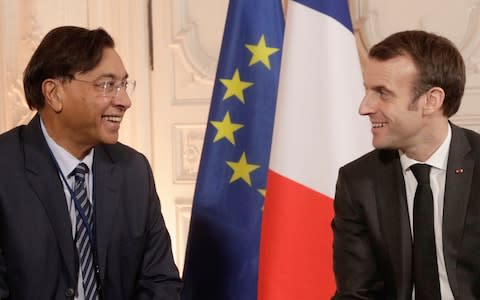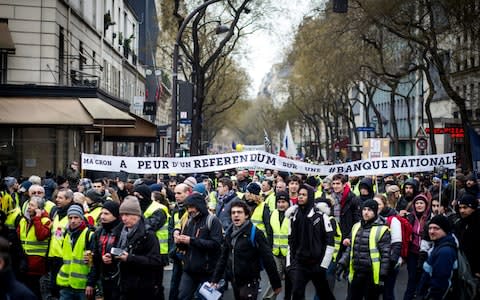World leaders shun Davos amid crises at home

It is seen as an annual opportunity for political and business leaders to meet and try to set the world to rights, but this week’s Davos gathering may be best remembered for those who stayed away.
For nearly half a century, the great and the good have met each January at the elite resort in the Swiss Alps.
This year, however, many leaders are either too busy dealing with crises at home or too worried about criticism over the cost of attending the glitzy get-together to succumb to the appeal of a few days in the clear mountain air of Davos.
The World Economic Forum in the resort officially opened today.
But among the missing are Theresa May, Donald Trump, Emmanuel Macron, the French president, the prime ministers of Canada and India, Justin Trudeau and Narendra Modi, and Emmerson Mnangagwa, Zimbabwe’s president.
Mrs May is staying in London after barely surviving a confidence vote in parliament after the House of Commons rejected her Brexit deal last week.

Mr Trump is skipping Davos to deal with the partial government shutdown as Democrats refuse to approve funding for the $5.7 billion wall he wants to build along the Mexican border.
Mr Mnangagwa is preoccupied with violent protests over rising fuel costs in Zimbabwe that left at least a dozen people dead last week.
Mr Modi is busy preparing for a tough general election in India this spring as he faces a resurgent Congress party, the main opposition to his governing BJP.
Mr Trudeau is also staying away after coming under fire from critics in Canada over the cost of his Davos sojourn last year, reported to be at least £400,000.
Mr Macron said “non“ to avoid further angering “yellow-vest” protesters who have taken to the streets of France for 10 consecutive weekends.
Instead, he mounted a charm offensive for 150 international business leaders in the gilded splendour of the Palace of Versailles on Monday.
However, the “yellow vests” managed to intrude on his attempt to convince foreign investors not to be put off by the protests, with demonstrators gathering outside holding placards complaining of low wages.
Mr Macron’s disastrous approval ratings and the continuing mayhem on French streets mark a stark contrast with last January, when he triumphantly took the spotlight in Davos.
“France is back!” he proclaimed to fellow world leaders and heavyweights of international finance and industry. “France is reconciled with globalisation, the economy and success.”
Nothing could now seem further from the truth as the protests over high taxes and the cost of living amplify a populist backlash against big business and the metropolitan elite in the “forgotten France” of struggling rural areas and small towns.

The “yellow-vest” protests have put wind in the sails of Marine Le Pen’s far-Right National Rally, while the centrist president is left to make the difficult case that his structural reforms may cause short-term pain but will create jobs and improve living standards in the future.
About 120 senior figures from multinationals and another 30 business leaders attended Mr Macron’s second “Choose France” conference in the Versailles palace built for Louis XIV, the Sun King.
Among them were Satya Nadella, Microsoft’s chief executive officer, JP Morgan’s Jamie Dimon, James Quincy of Coca-Cola and Ikea’s boss, Jesper Brodin. Many were stopping off on the way to Davos.
“Yellow vests” lambasted “King Macron” for entertaining foreign capitalists. “A lot of these companies don’t even pay tax in France,” said Jean-Paul Brossart, 46, a technician.
The meeting began with lunch with Edouard Philippe, the prime minister, followed by what was dubbed a “speed dating” session, with business leaders being offered one-on-one encounters with French ministers.
However, investments announced at the “Choose France” meeting amounted to about 600 million euros (£530m), far below last year’s 3.5 billion.
The largest single investment came from China’s MicroPort medical equipment manufacturer, which is pumping an additional 350 million euros into its research and development centre outside Paris.
Frédéric Sanchez, head of the international section of the French employers’ federation Medef, said the “yellow vests” were undermining efforts to attract investment.
“When you’re in the United States and you see the ‘yellow vests’ attacking world famous symbols, you get the impression that it’s civil war,” he said. “The attractiveness of France is collapsing.”

 Yahoo News
Yahoo News 